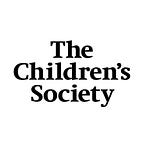Our commitment to anti-racist practice on our continuous journey
Author: Nerys Anthony, Interim Executive Director of Youth Impact
Youth Impact is where all our services for young people are led and managed at The Children’s Society. In June, we launched our anti-racist practice statement of intent within this domain.
The statement of intent signified an important step towards making sure we are inclusive in how we deliver services for children and young people. It’s a step in a journey we’ve been on for some time, thinking about who we deliver services to, how we do so, and working towards much more inclusive practice.
‘We all have a role to play in facing up to discrimination and prejudice…’
Together we want to celebrate the diversity of young people’s experiences and challenge those systems which unfairly impact their lives. As the statement of intent shows, we all have a role to play in facing up to discrimination and prejudice and becoming truly anti-racist in our approach. To do this well, we recognise that the learning journey needs to start with self-reflection and appreciating what we each individually bring to our work that sits behind our organisational culture.
Contributing work has included anti-racist practice training delivered by Craig Pinkney; creating reflective spaces and opportunities for conversation; sharing resources and changing some of the foundations of our approaches and accompanying policies and processes that support our delivery with young people.
The statement of intent aligns to our organisational wide People Experience Framework, to demonstrate how we will create lasting change under Inspiring Leadership; Having a Voice; Getting the Basics Right and Feeling Valued. It also fits within The Children’s Society’s strategic objectives and wider cultural development work, focused on embedding equality, diversity, and inclusive practice throughout all that we do.
Intentions
The commitment of the youth impact domain to progress and champion anti-racist practice in all that we do is set out in the statement of intent.
Our Senior Management team intended to launch the work with a bang and for scurries of action to follow. Since the launch in June, we’ve learnt that there is no big bang when it comes to changing culture and practice. For some, facilitated learning and development is needed, for others a space to talk and mull over ideas works better. Self-directed individual learning is preferred by others, and some are seeking tools to test and learn with. No matter what the preferred learning style is, the important thing is that anti-racist practice is everybody’s business.
Our ambition is to change how we deliver for young people but to also change the way we conduct ourselves in communicating with each other so that we can enable a safe, diverse, and inclusive environment for all. To make this happen and drive forward the implementation of our statement of intent, we are trying out different approaches to see what gets the most traction.
Committed to conversations
This month we launched our new Committed to Conversations sessions. The intention with these sessions is to create dedicated time for colleagues to put their pens down, join a virtual conversation and feel confident to listen, and contribute to different themes that are emerging from our work with young people.
This first session was an hour-long conversation led by two colleagues on the topic of identity. At its peak, we had around 60 people (17% of our domain workforce) in attendance. We’ve already learnt from this session, that colleagues are hungry for support to have more effective conversations with young people about their identity. We’ve also learnt some practical things, like how to manage the chat function when talking about sensitive issues, and are reflecting on how we manage all the contributing voices to allow space for others. The date for the next session is booked, and we are committed to developing the approach and creating space for conversation. We hope that colleagues will in time feel confident to step in and lead sessions. With this work, our aim is to have open conversations for knowledge and experience sharing — to allow insight to permeate, empathy to emerge and deep listening and reflection to follow.
We’ve also learnt that our colleagues need more support to be able to talk about this work and what it means more confidently. To help with this, a Curious Questions and Responses document has been created to give colleagues more context in relation to our anti-racist statement of intent. It is intended to support reflection, and for colleagues to gain more of an understanding as to the intentions of the team in progressing this important work.
Sitting behind the statement of intent is a detailed work plan that is looked after by our Safeguarding and Quality Practice team. This is monitored quarterly, with progress reported to our senior leadership team in the youth impact domain. We are working out how we can keep communicating back to our wider colleagues the progress being made. We want to get the balance right of not too many communications, but also people being aware of the progress being made and this remains on the radar.
Our intention is to create sustainable change in our service delivery and ways of working: anti-racist practice that will be lived and breathed across the workforce and by our volunteers — embedded and embodied. This is a far-reaching goal, that won’t happen overnight, but we are committed to our intentions and will keep working on it.
We strive to get the best out of young people so that they can get the best out of us.
Author’s Note: I’m the Interim Director for Youth Impact, so I play an important leadership role when it comes to inclusive and anti-oppressive practice. However, I am only one part of a much bigger team of people who are driving this work forward. None of them particularly wanted to write this blog — but I want to acknowledge all their work and contributions: they know who they are. Thank you team.
